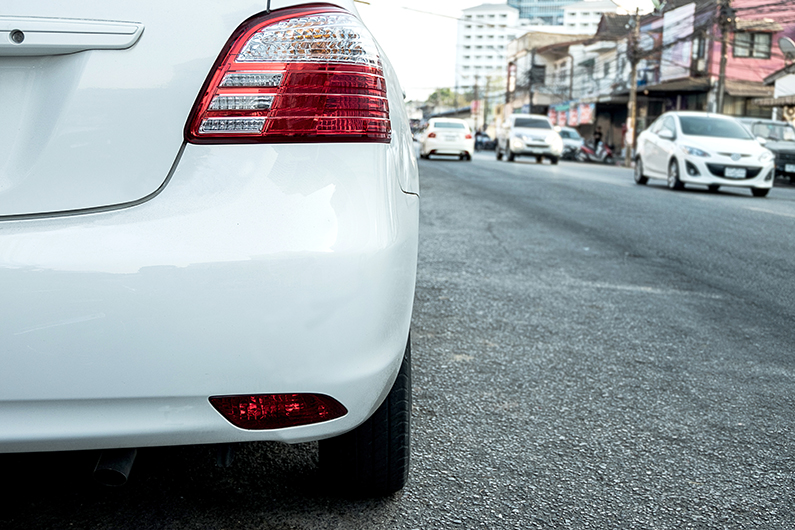More news
- Asian paint regulatory round up – Indonesian exterior paint still uses lead, warns W...
- Nigeria’s paint industry navigates regulatory changes and economic challenges amid p...
- Focus on the global coatings market: Global coatings market outlook
- Ask Joe Powder – October 2024
- Chinese paint majors look to domestic consumer sales as commercial real estate slumps

At the international VDI congress Plastics in Automotive Engineering 2024 (PIAE), June 19-20, in Mannheim, Germany, Envalior will present material and technology solutions that make cars safer, lighter and more sustainable. The new plastics company, which was created through the merger of two industry leaders – DSM Engineering Materials (DEM) and Lanxess High Performance Materials (HPM) – offers a very extensive and versatile product portfolio of high-performance thermoplastics and advanced composite solutions.
“We see ourselves as a hub of innovation and ideas and, with our wealth of product, application and technology expertise, help development partners to realise innovations for sustainable automobiles of the future,” explained Dr. Matthias Theunissen, Advanced Development Expert Lightweight Technologies at Envalior. Envalior’s exhibits in Mannheim will focus on lightweight design, e-mobility, electrical and electronic vehicle (EV) components, and driving comfort.
EV power electronics made with high-tech thermoplastics
Envalior will be showcasing several components for power control units (PCUs). The PCU is a central element of power electronics in EVs and, among other things, regulates the flow of electricity from the battery to the electric motor. One of these components is a cooling frame with integrated insulated-gate bipolar transistors (IGBTs) made from XytronTM G4024T. Thanks to this polyphenylene sulfide (PPS), the component has excellent stability and creep resistance properties in common water-glycol coolant mixtures over its entire service life. The material can be joined easily by laser transmission welding or vibration welding. Welding the frame therefore results in very strong weld seams.
Envalior will also be showing a fully assembled IGBT module with SiC (silicon carbide) high-power transistors made with PPS XytronTM. In addition to PPS, the company offers a broad portfolio of compounds made from halogen-free, flame-retardant polyphthalamides (PPA) in the ForTii® portfolio and polybutylene-terephthalates (PBT) in the Pocan® portfolio for these types of housings.
PBT is a good choice of material up to a current-voltage operating range of approximately 400 amperes/2.5 kilovolts. In the event of higher current/voltage requirements, PPA and PPS will withstand the related working temperatures better. The high thermal stability and excellent electrical insulation properties of all materials ensure that the IGBT modules will operate reliably over the entire life of the vehicle. The right choice of additives that do not contain halide or other electrically conductive ions also contributes to this outstanding performance. This minimises the risk of electro-corrosion during operation of the power electronics. The IGBT exhibit highlights that Envalior can meet stringent demands for complex electronic assemblies with a broadly diversified product portfolio and supply customers as a one-stop shop.
READ MORE:
PPG marks strong progress against 2030 sustainability targets with latest report
Fire-resistant battery housings engineered with Tepex®
On the subject of e-mobility, Envalior is also presenting a new composite material reinforced with continuous fibers under the Tepex® brand. It is intended for battery housings and related components, such as cell casings, holders and separators. The composite passes standard thermal runaway tests for battery housings in EVs with wall thicknesses of just 1.5 mm without swelling. It therefore blocks the spread of flames in the event of a battery cell fire, protecting vehicle occupants and neighboring assemblies. The material is significantly lighter than steel and aluminum, and is also available in an electromagnetically shielding version.
PFAS-free battery cell holder for e-bikes made of Durethan®
Another exhibit on e-mobility is a commercially launched battery cell holder for e-bikes made of Durethan® BKV20FN01 DUSLHC, a glass fiber-reinforced polyamide 6 compound whose flame-retardant package is free from per and polyfluoroalkyl substances (PFAS) and free from other halogenated additives. Further advantages of the compound are its good mechanical properties and its high resistance to battery-typical chemicals such as electrolytes.
Lightweight design with Durethan® or Akulon® in hollow profile hybrid technology
Envalior will also be showcasing several test specimens to demonstrate the performance of hollow profile hybrid technology (HPH) in lightweight construction. HPH is a further step-up in plastic-metal composite technology. Instead of steel or aluminum sheets, metallic hollow profiles are reinforced and functionalized with plastic compounds like Durethan® or Akulon®. The new technology offers weight savings of up to 35%, enables high-precision production with low tolerances and results in rework-free components that in some cases have better damping and acoustic behavior (noise vibration harshness) than corresponding components made of steel.
Components made of Durethan® and Arnitel® offer a comfortable ride
Applications for automotive comfort will also be showcased at the booth. There will be an air suspension piston housing, which is used in vehicle models from various OEMs. Instead of metal, the housing is made from polyamide 6 compound Durethan® that is highly reinforced with 60% glass fibers. The construction material results in an economical and lighter component solution. Furthermore, it can withstand high dynamic loads and, as an injection-molded material, enables the cost-reducing integration of functions such as guides and mounts. Despite the high glass fiber content, the melt of the compound flows so well that even thin wall thicknesses can be implemented and filigree component areas can be produced.
Another application focused on vehicle comfort are boots for constant-velocity joints in automobiles, which dampen engine and transmission shaft vibrations and the associated squeaking noises. The viscoplastic boots are made of the thermoplastic copolyesters Arnitel® (TPC) and protect the joints from external contamination, such as dust, water and particles. They have to withstand extreme turning angles in a temperature range from -45 °C to 140 °C. The oil- and grease-resistant TPCs are an alternative to chloroprene rubber in this application because they reduce the boot weight and the manufacturing costs and have a carbon footprint that is up to 30% lower.







